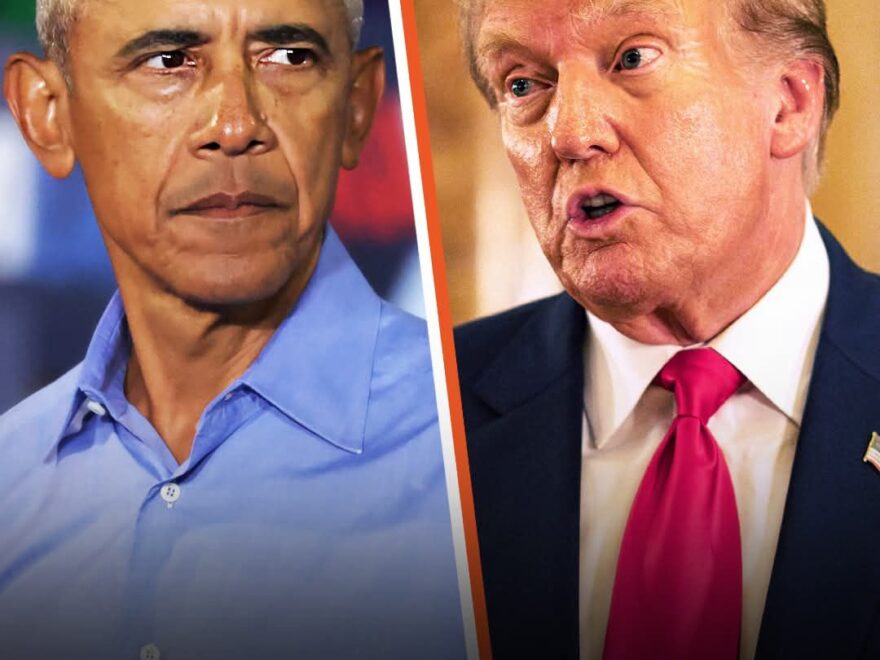Former President and Harvard Law School alumnus Barack Obama praised Harvard University for resisting pressure from the Trump administration, which has threatened a funding freeze over what it alleges is the university’s insufficient response to antisemitism and other key concerns.
Obama, who has been outspoken in urging academic institutions not to yield to what he describes as intimidation, commended Harvard for standing firm in the face of political scrutiny.
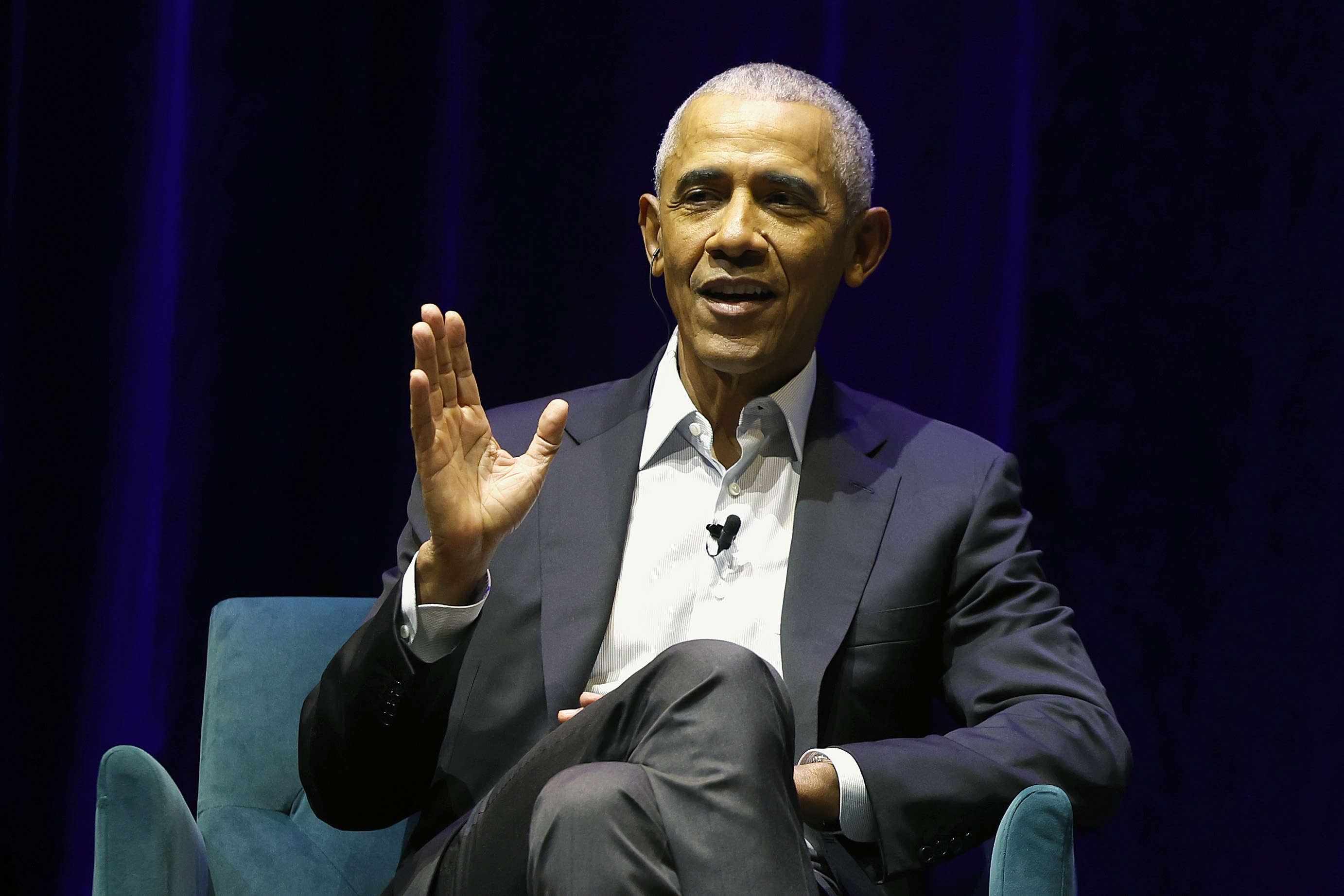
Barack Obama participates in a book talk with former German Chancellor Angela Merkel at The Anthem in Washington, DC, on December 2, 2024 | Source: Getty Images
In a statement shared on X Obama praised the university, “Harvard has set an example for other higher-ed institutions – rejecting an unlawful and ham-handed attempt to stifle academic freedom.”
He added that, through this decision, Harvard is helping to foster an environment where respectful dialogue, robust debate, and intellectual openness can thrive for all students. “Let’s hope other institutions follow suit,” expressed Obama.
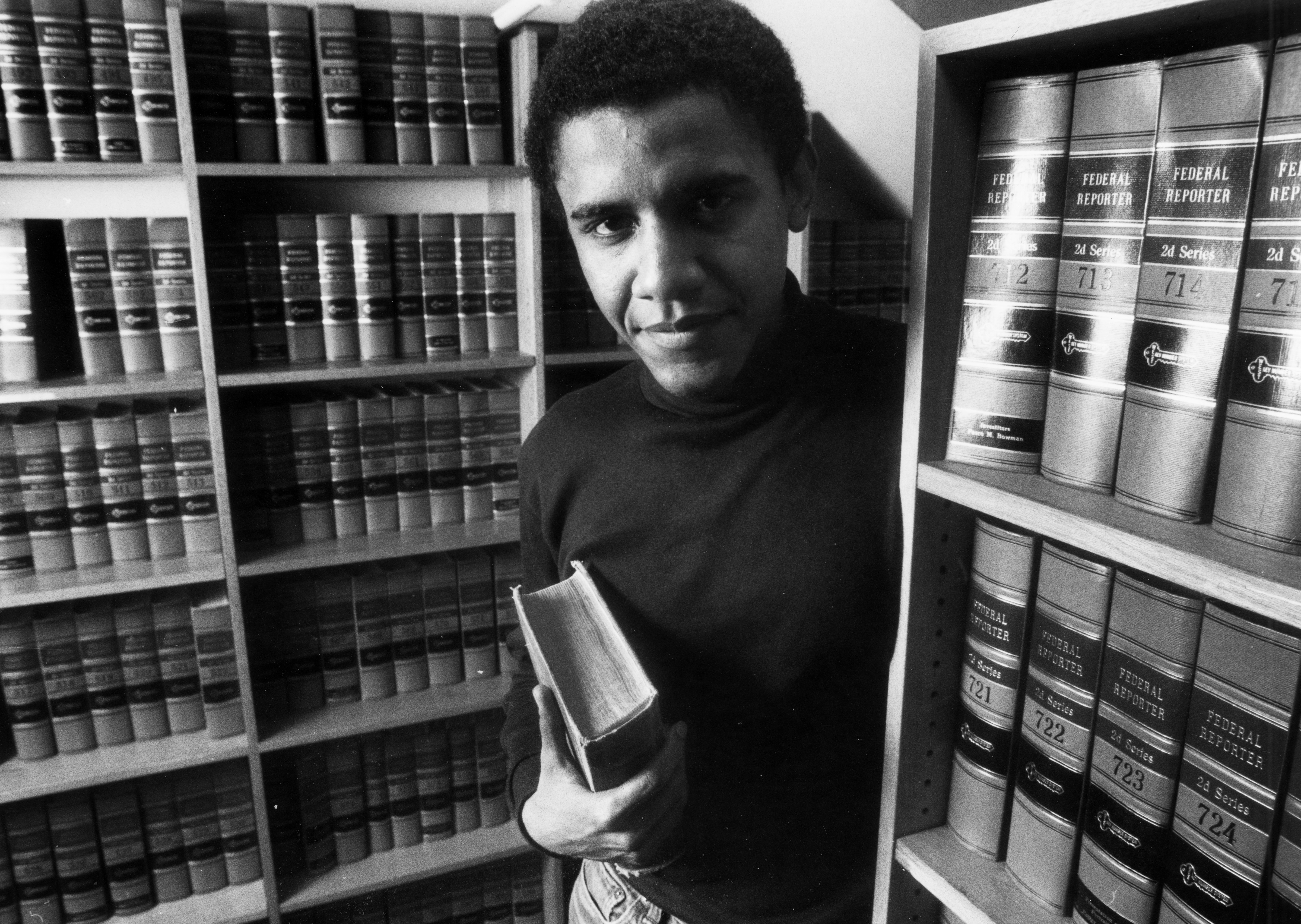
Barack Obama poses in the office of The Harvard Law Review after being named President of The Harvard Law Review, on February 5, 1990 | Source: Getty Images
Barack Obama’s remark came after Harvard said on Monday, April 14, that it was refusing to comply with a series of demands from the Trump administration.
The letter of demands sent by Trump’s administration stated that Harvard had, in recent years, failed to uphold both the intellectual and civil rights standards that justify federal investment.
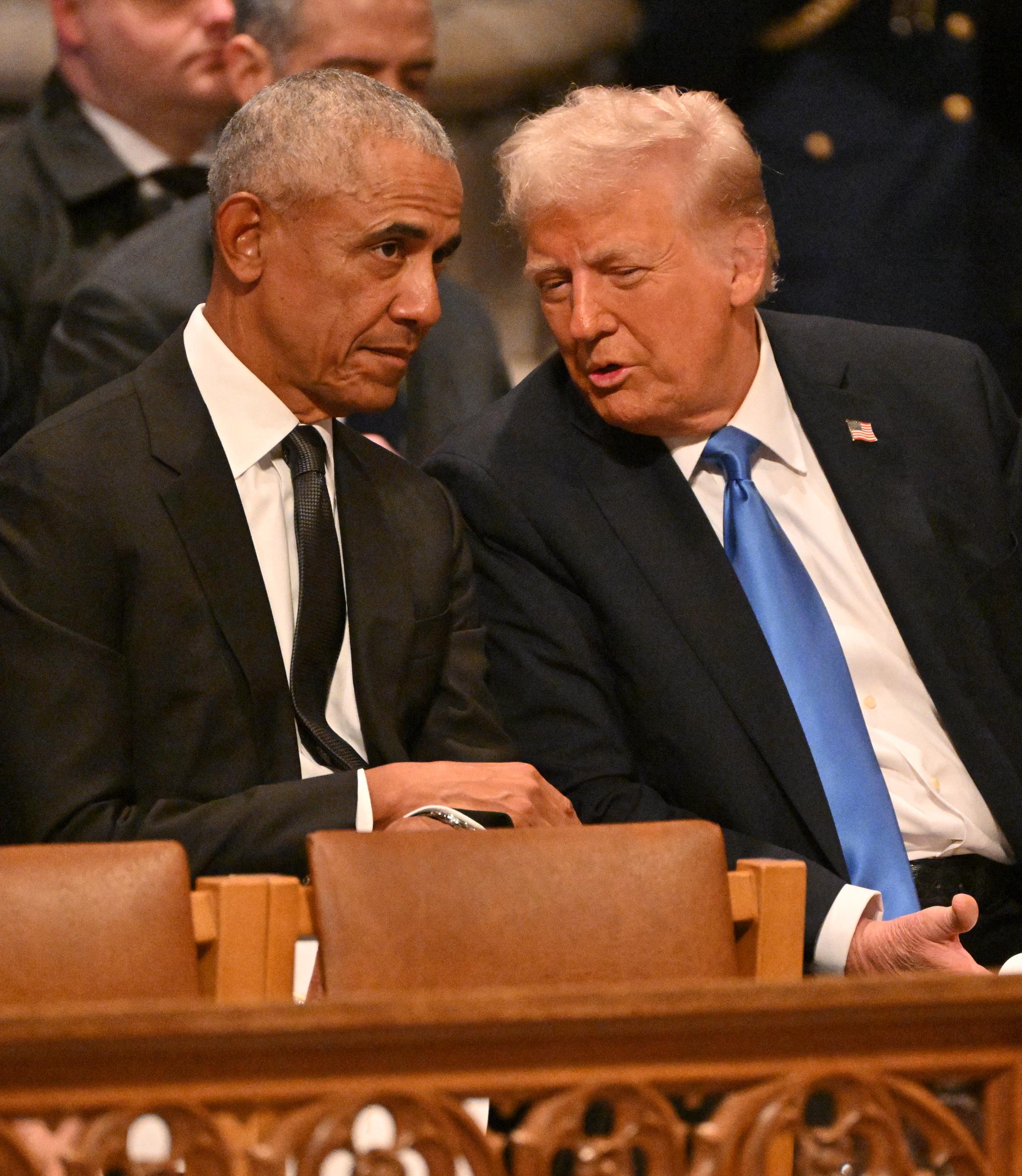 </picture
</pictureDonald Trump speaks with Barack Obama as they attend the State Funeral Service for former US President Jimmy Carter at the Washington National Cathedral in Washington, DC, on January 9, 2025 | Source: Getty Images
The letter further stated that if Harvard found the demands acceptable, the document would serve as an agreement in principle. From there, both parties would be expected to negotiate in good faith toward a more detailed and binding settlement agreement.
The letter then outlined a series of sweeping reforms the university would be required to implement. By August 2025, Harvard must restructure its leadership to establish clear lines of authority, empower scholarly leaders, reduce the influence of students and activists, and eliminate governance inefficiencies.
Additionally, the university would be required to adopt race- and identity-neutral hiring practices, strictly enforce rules against plagiarism, and permit the federal government to audit personnel changes and hiring data through 2028.
Harvard’s admissions process must be reformed to rely solely on merit, eliminating identity-based preferences. Relevant data would be subject to federal audit, and deans would be required to certify compliance following each admissions cycle.
International applicants must be screened for hostility toward U.S. values, with any misconduct reported to federal authorities. These reforms must be both visible and auditable by August 2025.
To ensure ideological diversity, the university must audit academic departments, make necessary personnel adjustments to balance viewpoints, and eliminate ideological criteria from admissions and hiring decisions. These efforts would be subject to annual federal review through 2028.
Programs accused of antisemitism or ideological bias would be required to undergo external audits. Faculty found in violation would be held accountable, and follow-up evaluations would be conducted yearly.
All Diversity, Equity, and Inclusion (DEI) initiatives must be immediately dismantled. The university must demonstrate that the reforms are enduring by implementing structural and personnel changes.
Student discipline policies must be made transparent and consistently enforced. Student organizations must be held accountable for their actions, support for groups linked to antisemitic activity must be withdrawn, mask-wearing prohibited, and all prior misconduct addressed.
Whistleblower protections must also be established to ensure that individuals can report violations of the reform measures without fear of retaliation.
Finally, Harvard would be required to submit certified quarterly progress reports, allow audits of foreign funding, and maintain full transparency with federal regulators through at least 2028.
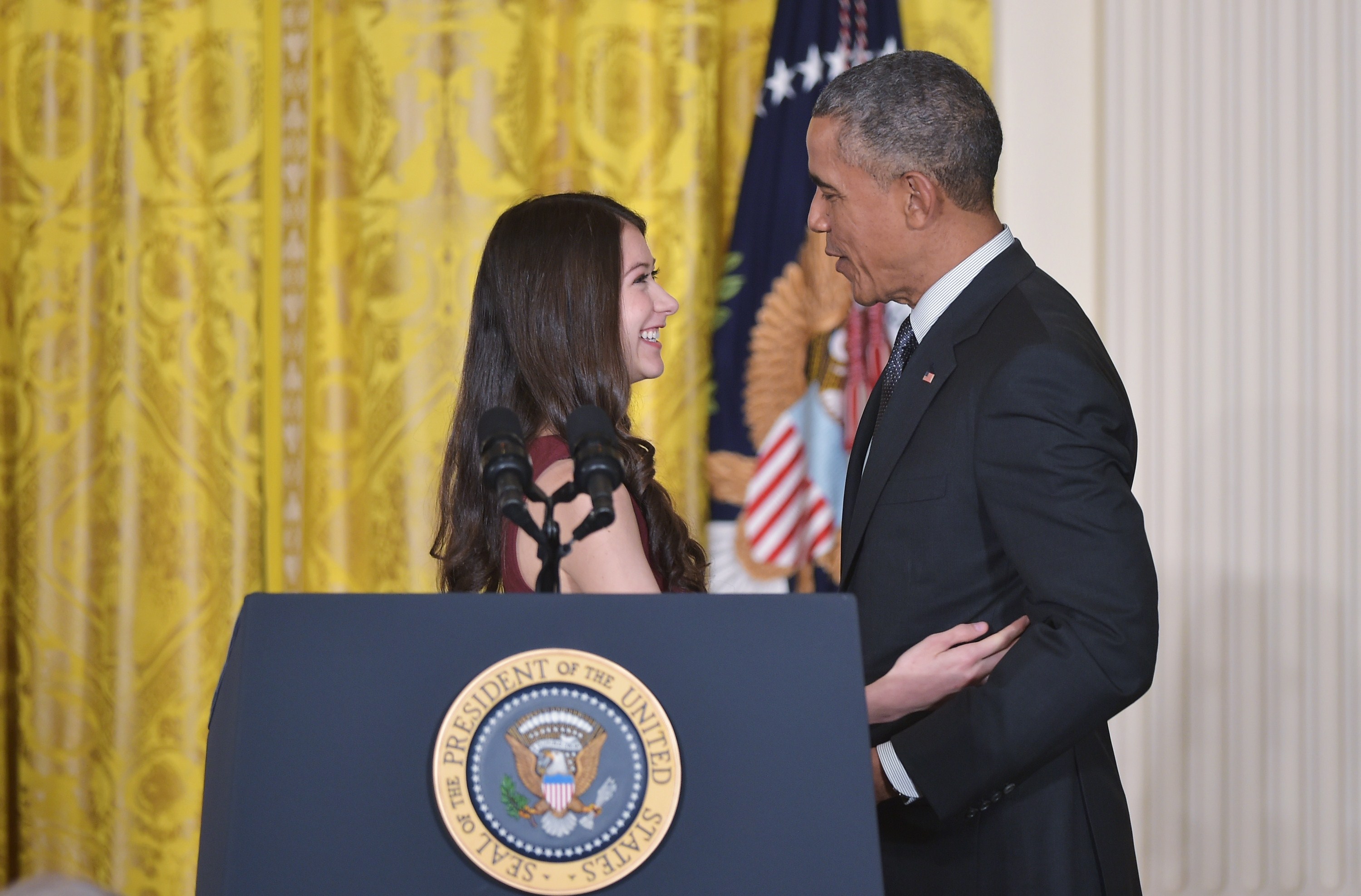
Harvard University student Elana Simon hugs Barack Obama after introducing him before he spoke on investments in “precision medicine” in the White House in Washington, DC, on January 30, 2015 | Source: Getty Images
In a statement shared on the institution’s official website, Harvard President Alan Garber said the university had informed the federal government, through legal counsel, that it would not agree to these terms set out by Trump’s administration.
He maintained that the proposed requirements overstepped the federal government’s authority and infringed on the university’s constitutional freedoms, particularly its First Amendment rights. .
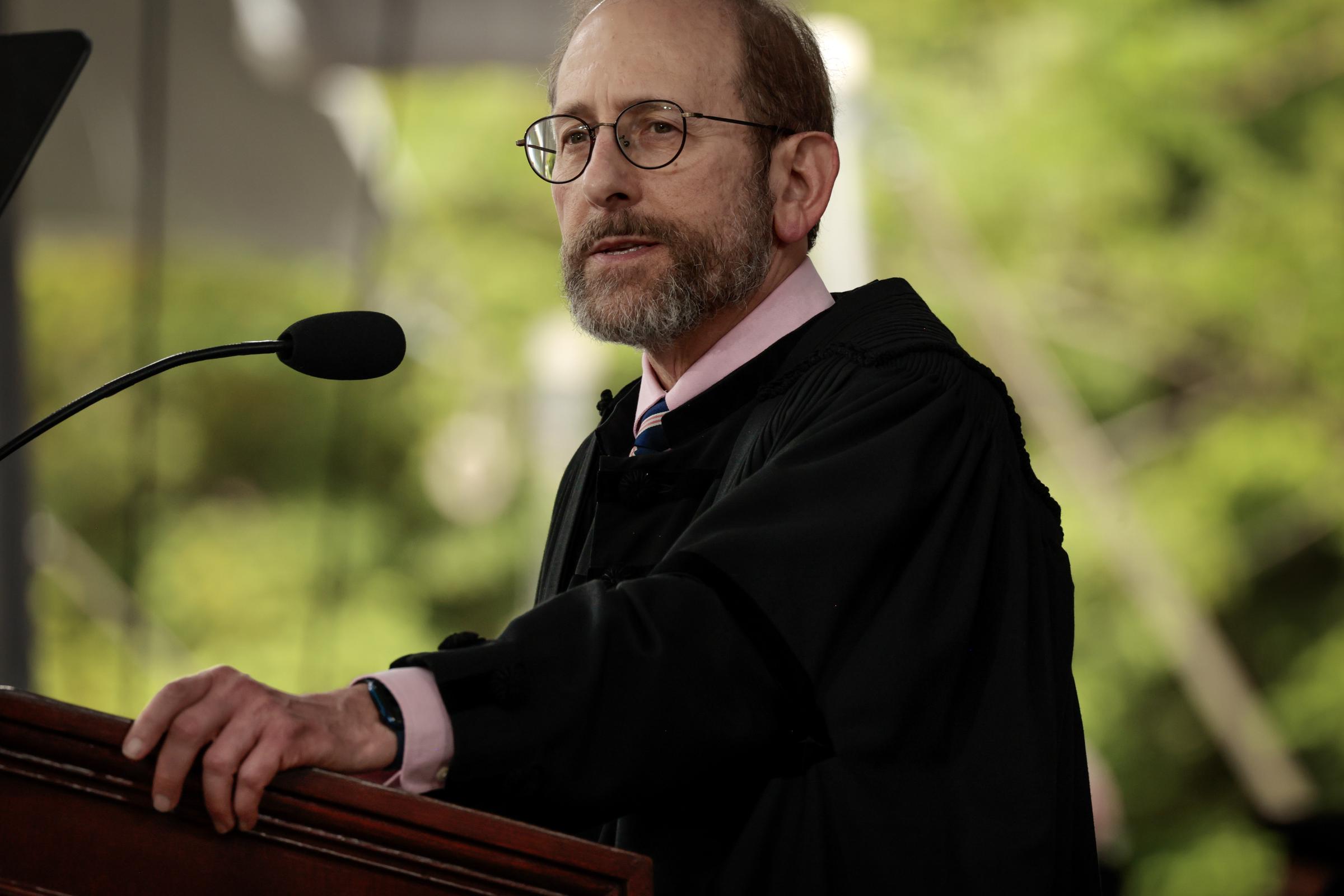
Alan Garber addresses the crowd during the 373rd Commencement at Harvard University, on May 23, 2024 | Source: Getty Images
“No government—regardless of which party is in power—should dictate what private universities can teach, whom they can admit and hire, or which areas of study and inquiry they may pursue,” Garber stated.
He further emphasized that the administration’s approach exceeded the bounds of Title VI of the Civil Rights Act, which prohibits discrimination based on race, color, or national origin in federally funded programs.
Garber argued that the proposed demands went beyond the statutory limits of Title VI, which, he noted, was never intended to infringe on academic freedom or the university’s autonomy in managing its educational mission.
While reaffirming Harvard’s commitment to combating antisemitism, Garber also stressed the vital role federal funding plays in advancing critical research.
He warned that the withdrawal of such funding would jeopardize ongoing studies into diseases such as Alzheimer’s, Parkinson’s, and diabetes—research that holds significant implications for both public health and the nation’s economic well-being.
Garber concluded by noting that the university has already taken concrete actions to address antisemitism and remains committed to fostering a safe, inclusive, and respectful campus environment.
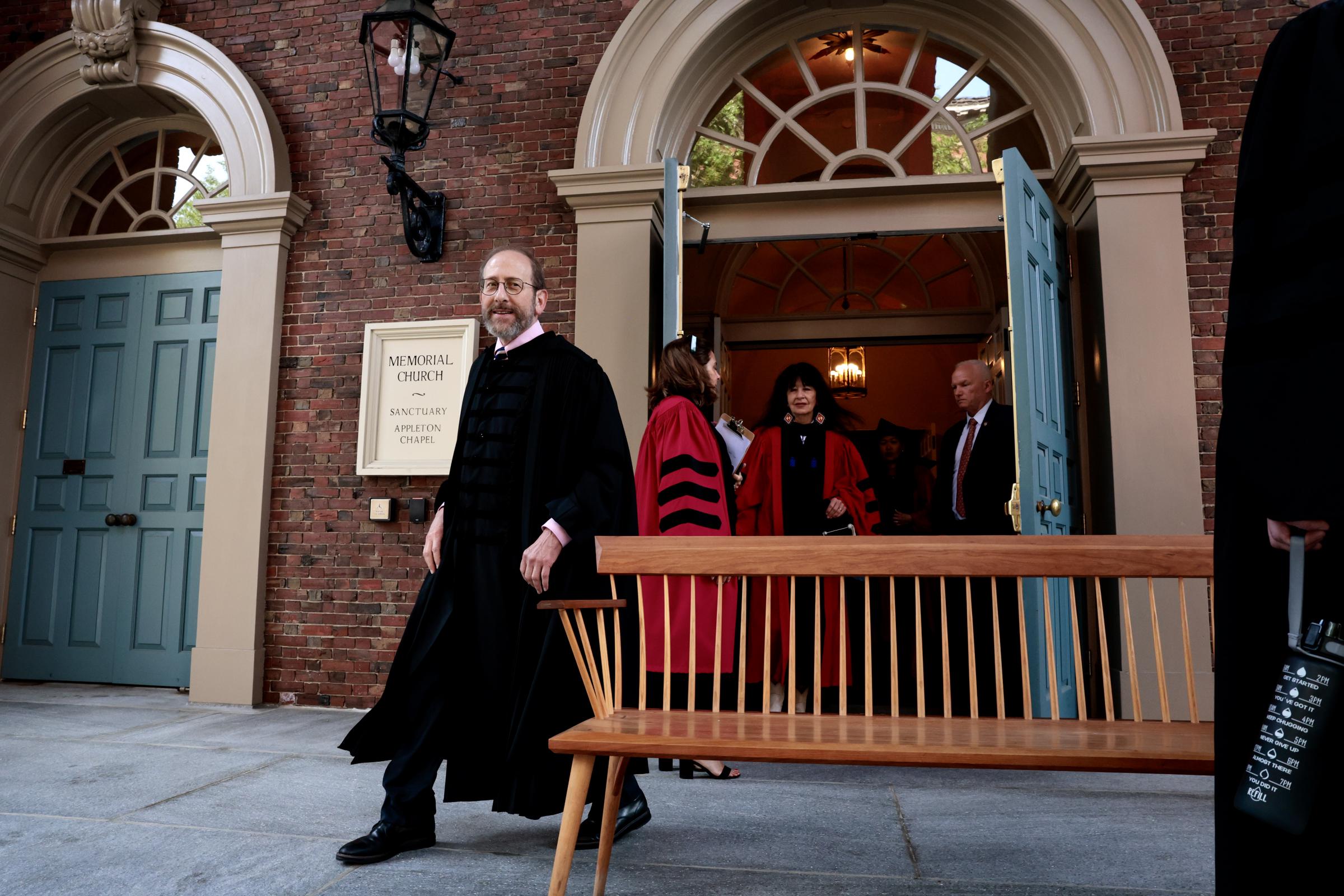
Alan Garber addresses the crowd during the 373rd Commencement at Harvard University, on May 23, 2024 | Source: Getty Images
Garber’s position is echoed in the letter sent by Harvard’s legal counsel in response to the Trump administration’s demands.
The letter highlighted various initiatives Harvard has implemented to combat antisemitism, including changes to campus usage policies, the introduction of new accountability procedures, and the imposition of meaningful disciplinary actions for policy violations.
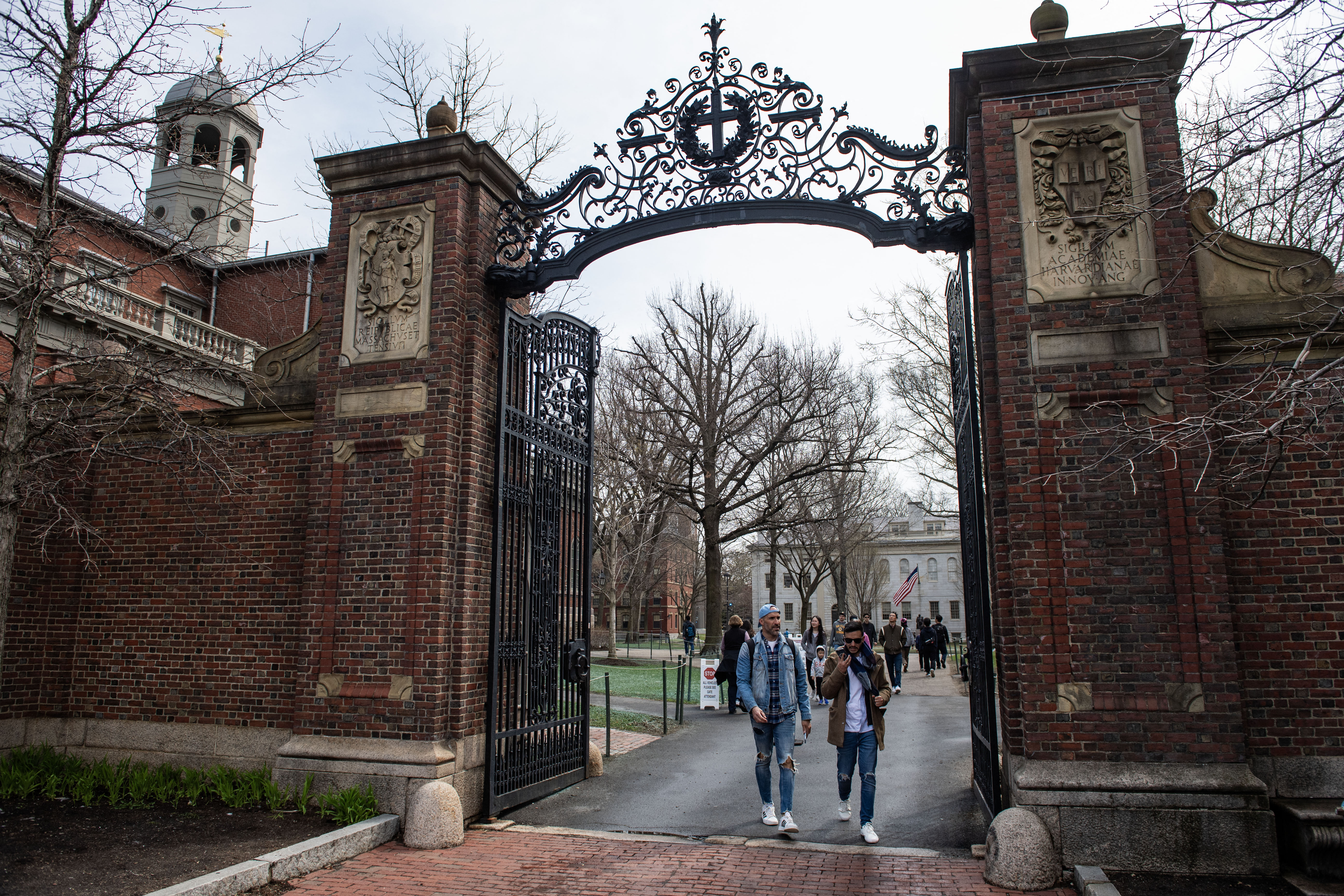
People walk through a gate as they exit Harvard Yard on the campus of Harvard University campus in Cambridge, Massachussetts, on April 15, 2025 | Source: Getty Images
Additionally, the university has bolstered programs aimed at addressing bias, promoting ideological diversity, and fostering civil discourse. Harvard also increased staffing to support these efforts, formed new partnerships, and allocated resources to combat hate and bias while enhancing security measures.
The letter emphasized that Harvard is in a much stronger position now compared to a year ago, despite the Trump administration’s disregard for these proactive measures.
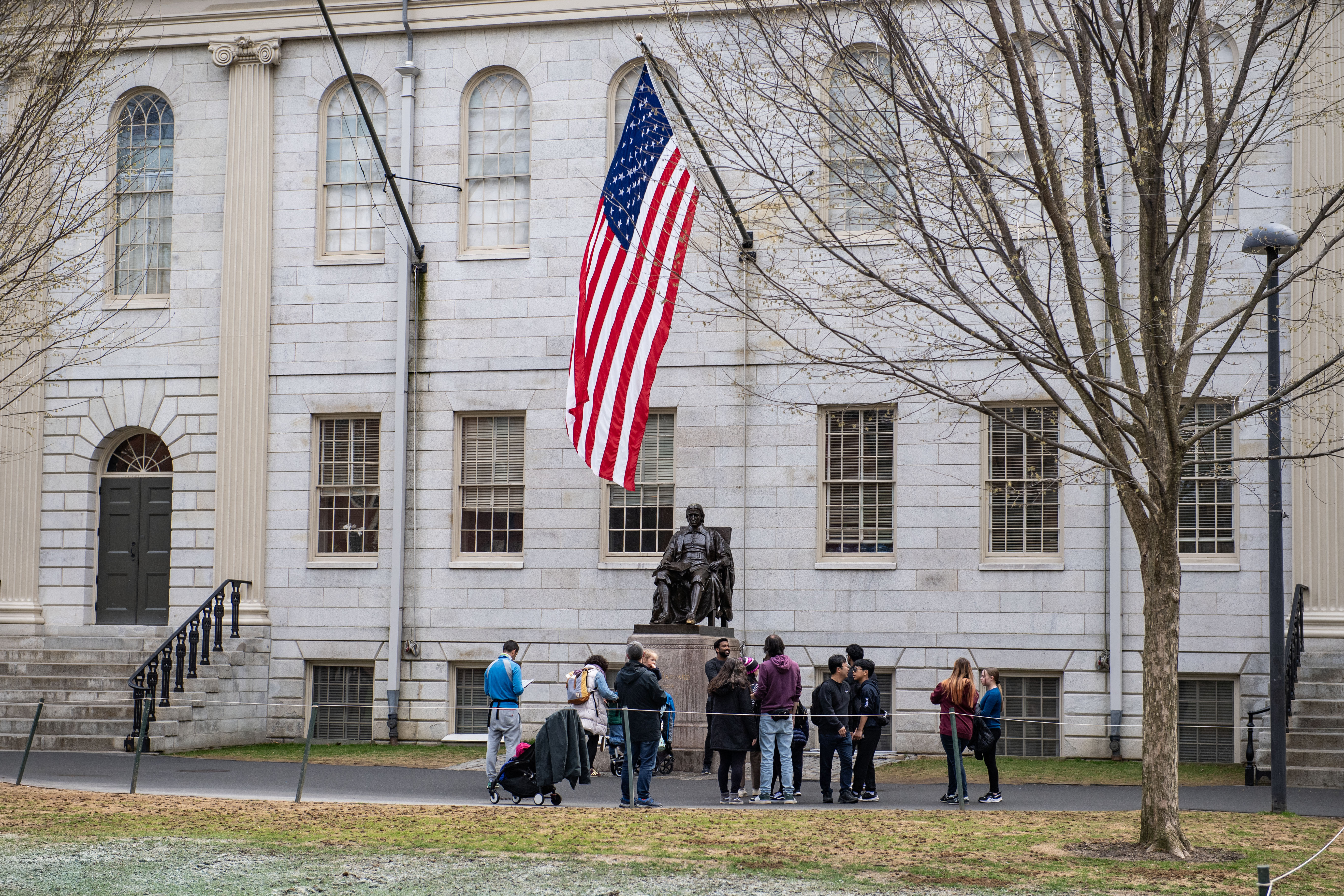
People gather around the John Harvard Statue on the Harvard University campus in Cambridge, Massachussetts, on April 15, 2025 | Source: Getty Images
The university reiterated its openness to continued dialogue and affirmed its commitment to improving the campus experience for all members of its community.
However, it firmly stated, “The university will not surrender its independence or relinquish its constitutional rights. Neither Harvard nor any other private university can allow itself to be taken over by the federal government. Accordingly, Harvard will not accept the government’s terms as an agreement in principle.”
In response to Harvard’s decision, former President Donald Trump called for the university to be stripped of its tax-exempt status, arguing that it was operating as a political entity rather than an educational institution.
He accused Harvard of being ideologically driven and claimed it supported what he described as “terrorist-inspired/supporting ‘Sickness.’” Trump emphasized that tax-exempt status is contingent upon serving the public interest, suggesting the university had failed to meet that standard.
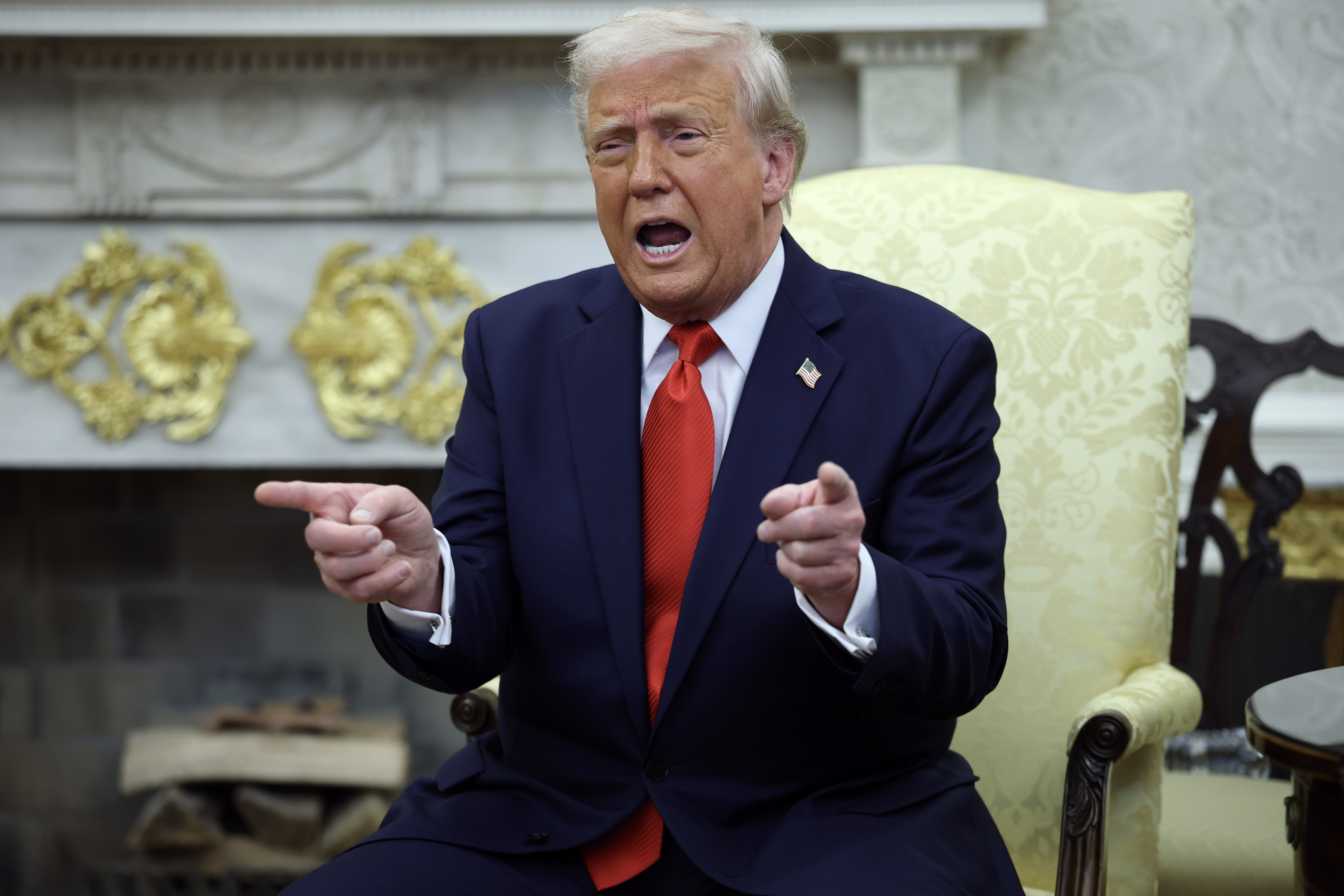
Donald Trump gestures as he meets with President Nayib Bukele of El Salvador in the Oval Office of the White House in Washington, DC, on April 14, 2025 | Source: Getty Images
The Joint Task Force to Combat Anti-Semitism, established under Trump’s administration, also responded to Harvard’s stance with a sharp rebuke. It criticized what it described as a “troubling entitlement mindset” among elite academic institutions.
The task force argued that federal funding requires a firm commitment to upholding civil rights laws and called out universities for what it sees as a failure to adequately address antisemitism and campus disruptions.
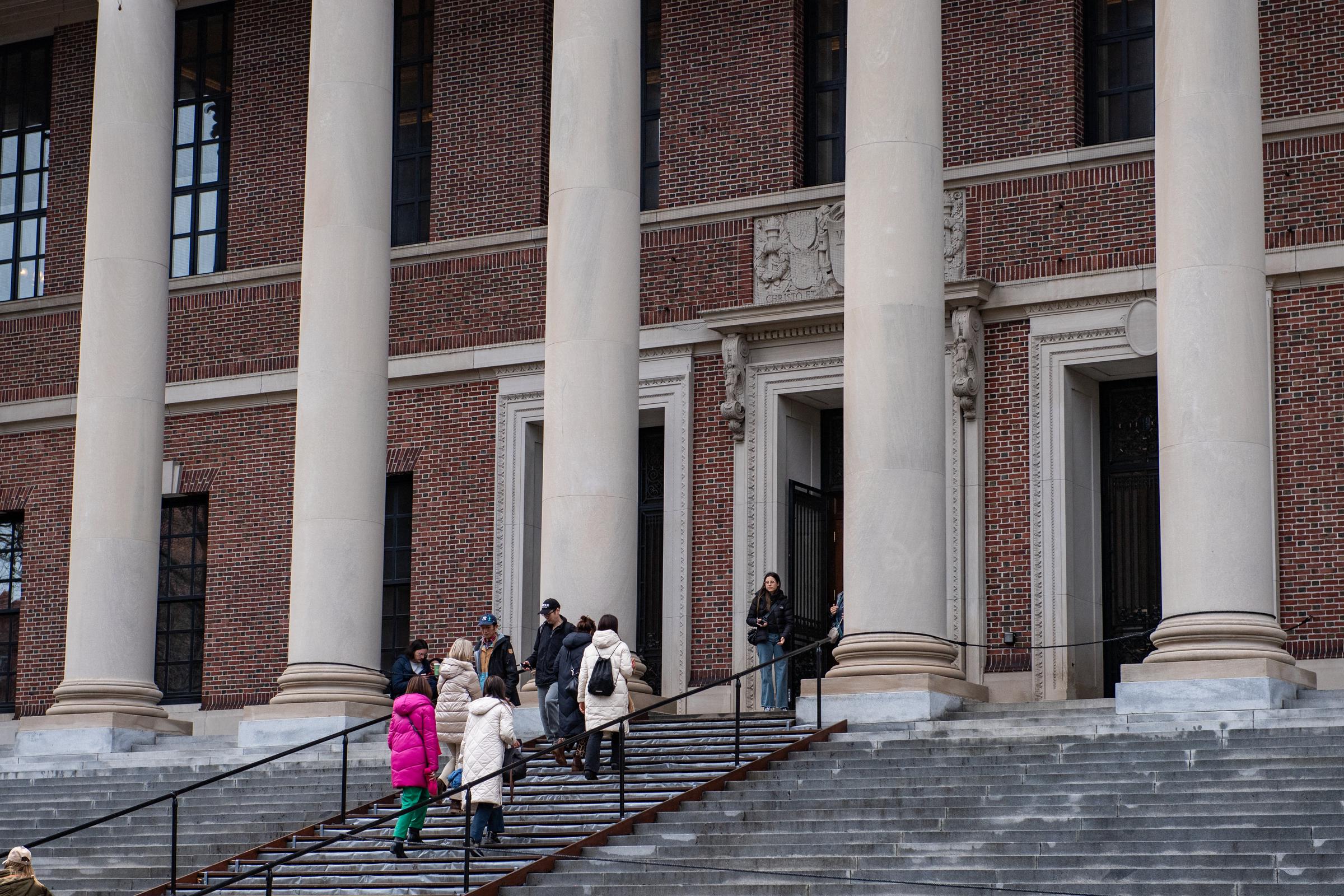
People enter and exit the Harry Elkins Widener Memorial Library on the Harvard University campus in Cambridge, Massachussetts, on April 15, 2025 | Source: Getty Images
The announced in the statement, “A freeze on $2.2 billion in multi-year grants and $60M in multi-year contract value to Harvard University.”
With retaliations and threats already surfacing in response to Harvard’s hesitation to accept the demands, many are beginning to question how long the university can hold its ground against the Trump administration’s pressure.
